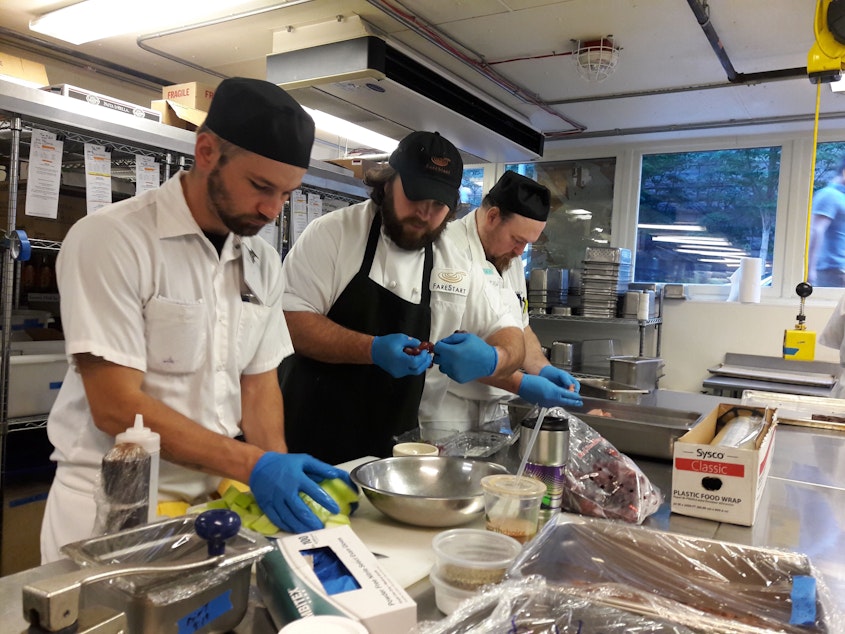He crawled out of homelessness. Now he's struggling to stop coronavirus from knocking him back down

A year ago, Michael was living in the streets. He had been homeless for three years, not being able to hold a job.
Last September he graduated from FareStart, a Seattle nonprofit that provides job training and life skills. He started work at a Seattle company that cleans commercial kitchen hoods. Everything was going well until March when he and his coworkers noticed their hours were being cut back.
“In less than a year, I turned my life upside down, back into a human being and I’m in a house,” said Michael. “I’ve got family, I’ve got friends, I’ve got just about everything that I can ask for.”
But just as Michael was rebuilding his life, the pandemic would turn it upside down once more.
“You could tell something was going on, and once they ordered the lockdown and people started calling, cancelling because they had to close the restaurants, they started laying us off,” Michael said.
The layoffs stemmed from the state’s “Stay at Home” order. While some restaurants remain open for takeout or delivery orders, many restaurants shut down.
Sponsored
Soon after being laid off, Michael called his adviser at FareStart.
“She was able to get us meals again which was awesome; it was something we really needed because I was at a breaking point where I had no money,” he said.
A couple of days later, his adviser reached out again about a job opening at FareStart. The non-profit was pivoting back to its original mission. Instead of teaching, the kitchens were redeployed to cook meals for people in shelters and those in need. Michael was hired as a driver, delivering meals to homeless shelters around the city.
Michael says it’s temporary work, but he’s grateful for the opportunity.
“I’m giving back to them when not just I’m going through hard times, but the entire nation and the entire world is going through hard times,” he said.
Sponsored
Before the outbreak, there were more than 333,000 people working in the food and drink industry, making up 10 percent of employment in Washington state. Congress passed a relief package that gives direct payments to families and expands unemployment benefits.
But not everyone qualifies for government aid—workers like Ivan. We’re not using his full name because of his immigration status. Ivan worked in a corporate cafeteria until it closed in March.
“I was a supervisor there,’ he said through a translator. “I was helping coordinating the orders, requesting all the produce, making sure everything arrived. And also I was a cook there.”
He says he’s been looking for work. But as an undocumented immigrant, his options are limited.
“I’ve been going to construction sites and asking for jobs, but it’s a difficult situation because of my legal situation; they ask about it and I really can’t do that,” he said.
Sponsored
Ivan’s wife was also laid off. They have a toddler. So far they’re getting by on groceries from the food bank. But they're on their last paycheck. It’s been more than three weeks and he worries about being able to pay the bills.
Every worker and business wonders the same thing. Everyone wants to look ahead when businesses reopen, people return to work, and some old routines restart. But it’s not clear what that life will look like.
For now, the virus continues to spread, with everyone living through its shock waves.




